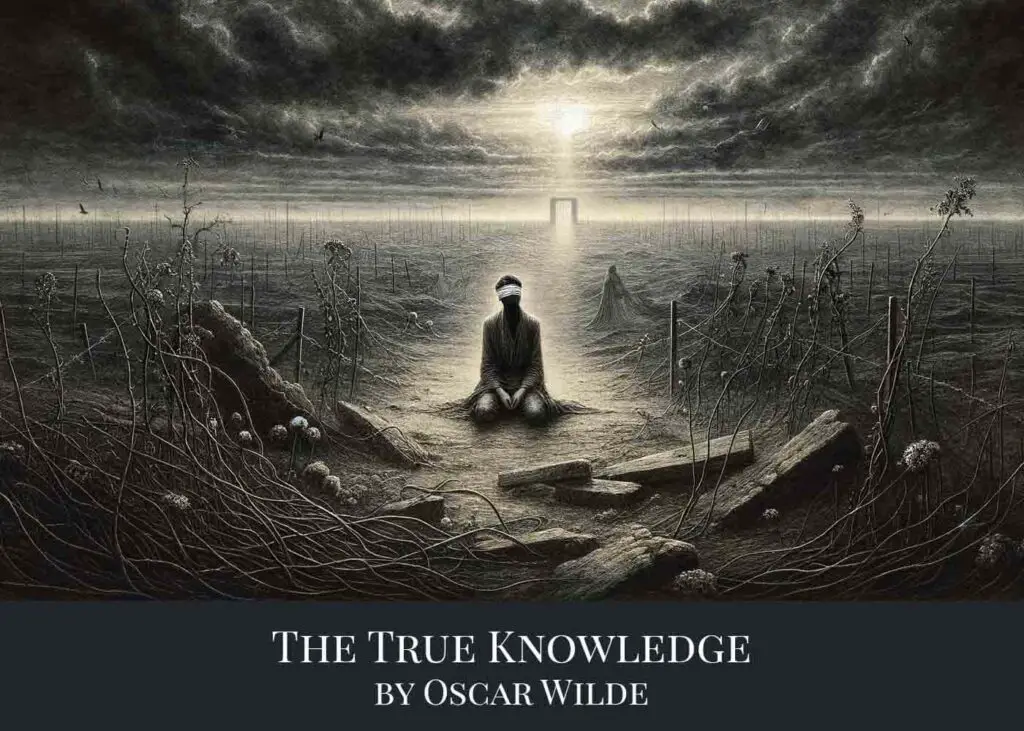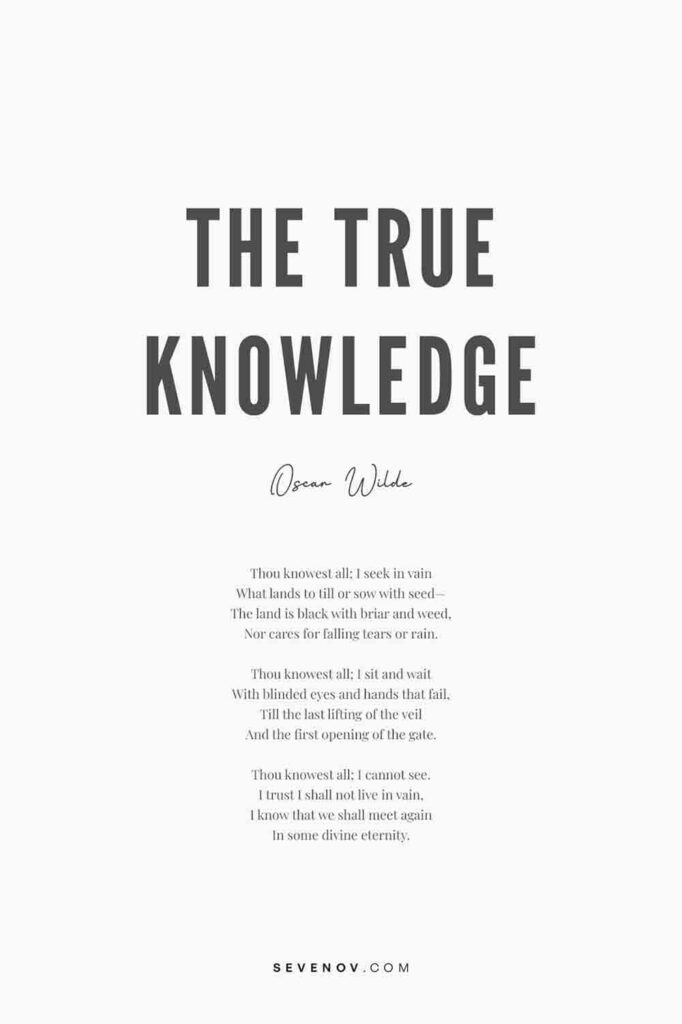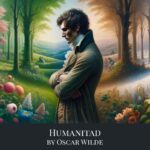
The True Knowledge by Oscar Wilde
“The True Knowledge,” a poignant poem by Oscar Wilde, reflects on themes of despair, the human quest for purpose, and the reliance on a higher, omniscient power. Through its stanzas, Wilde articulates a deep sense of uncertainty and a longing for understanding, all the while acknowledging the limitations of human perspective compared to the all-knowing entity he addresses. The poem concludes with a hopeful note about the afterlife reunion, suggesting a belief in something greater beyond this life. “The True Knowledge” is included in his poetry collection Poems. For those interested in exploring more of Wilde’s poetic works, Poems online book is available at PageVio.
1. The Poem
Thou knowest all; I seek in vain
What lands to till or sow with seed—
The land is black with briar and weed,
Nor cares for falling tears or rain.
Thou knowest all; I sit and wait
With blinded eyes and hands that fail,
Till the last lifting of the veil
And the first opening of the gate.
Thou knowest all; I cannot see.
I trust I shall not live in vain,
I know that we shall meet again
In some divine eternity.

Download The True Knowledge Poster
Size: 8″ x 12″ (2:3 ratio)
Format: PDF
Copyright information: For personal use only
Note: Actual poster background color is white. For the sample poster, the background is made gray for illustration purpose.
2. The True Knowledge Analysis
This poem consists of three stanzas, each beginning with the line “Thou knowest all,” indicating a conversation or address to a higher power or entity that is all-knowing. Let’s break down each stanza for a better understanding:
First Stanza
Thou knowest all; I seek in vain / What lands to till or sow with seed—
The speaker acknowledges the omniscience of the addressed entity and expresses his inability to find a purpose (“what lands to till or sow with seed”).
The land is black with briar and weed, / Nor cares for falling tears or rain.
This line metaphorically describes a state of despair, where the land (symbolizing the speaker’s life) is overrun with “briar and weed” (troubles or useless things) and is indifferent to efforts to nurture or change it (“falling tears or rain”).
Second Stanza
Thou knowest all; I sit and wait / With blinded eyes and hands that fail,
Continuing the theme of despair, the speaker describes themselves as passive and incapacitated (“blinded eyes and hands that fail”), waiting for something beyond his understanding or control.
Till the last lifting of the veil / And the first opening of the gate.
These lines suggest anticipation of the beginning of a new journey (“lifting of the veil” and “opening of the gate”), possibly referring to death or a spiritual awakening.
Third Stanza
Thou knowest all; I cannot see. / I trust I shall not live in vain,
The speaker admits his lack of understanding but holds onto a hope that their life has a purpose.
I know that we shall meet again / In some divine eternity.
The poem concludes with a confident belief in an eventual reunion with the addressed entity (“we shall meet again”) in an afterlife (“some divine eternity”).
Overall, the poem reflects themes of despair, the search for purpose, reliance on a higher power, and hope for understanding or redemption beyond the mortal realm.
3. Conclusion
If you enjoy Oscar Wilde’s “The True Knowledge,” you may also be interested in discovering more of Wilde’s poetic works.




